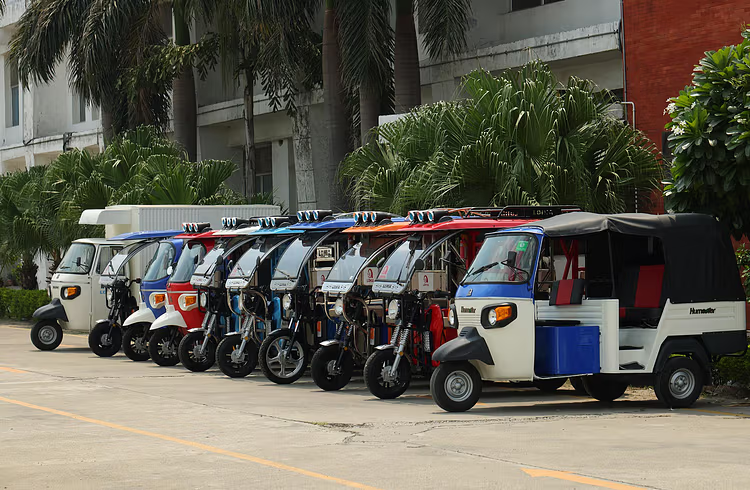Quick 4-Pointer Overview
- From Lohia to Zuperia – A legacy e-rickshaw brand takes on a bold new identity.
- The Youdha EPOD – A passenger L5 EV designed for performance, comfort, and real Indian roads.
- More Than Just Passengers – Expanding into cargo, waste management, and municipal service EVs.
- The Road Ahead – Targeting ₹1000 crore revenue by 2030, while building a full EV ecosystem.
Introduction
India’s electric mobility space is buzzing with energy. Cities are choked with traffic, fuel prices are unpredictable, and the need for affordable, green mobility has never been clearer. Against this backdrop, Zuperia Auto Pvt. Ltd., the company once known as Lohia, is stepping into a bold new era.
By rebranding itself and launching the Youdha EPOD, Zuperia isn’t just selling another electric three-wheeler—it’s signaling a vision for the future. The move marks a shift from dominating the e-rickshaw niche to taking on heavyweights like Mahindra, Bajaj, and TVS in the broader L5 passenger EV segment.
From Legacy to Leap: Rebranding with Purpose
For years, Lohia was almost synonymous with e-rickshaws in India. But the company knew that to grow, it needed a bigger identity. That’s where Zuperia Auto comes in—a fresh, forward-looking name that reflects ambition and scale.
Importantly, the legacy isn’t being erased. The Lohia brand will continue as a premium label, while Youdha has been created as a youthful, mass-market identity. This two-brand strategy allows the company to speak to both aspirational buyers and everyday users.
The Star Player: Youdha EPOD
The Youdha EPOD is Zuperia’s first big statement in the L5 segment. Unlike the humble e-rickshaw, this is a three-seater passenger EV designed to handle real-world demands:
- Performance: Efficient batteries and smooth drive.
- Comfort: Better seating and ride quality for passengers.
- Durability: Built tough for Indian roads, heat, and loads.
This makes the EPOD a natural fit for last-mile connectivity, especially in crowded urban centers where auto-rickshaws dominate today.
Market Potential: The Prize at Stake
Why all the buzz? Because the passenger electric three-wheeler market is huge—estimated at around ₹90 lakh crore. Demand is being powered by:
- The shift toward clean, sustainable transport.
- Growing cities where quick, affordable rides are essential.
- A cost advantage compared to four-wheelers.
But the road isn’t without potholes. Buyers often struggle with financing options, charging infrastructure is patchy, and vehicles need to be engineered specifically for India’s punishing conditions. Zuperia acknowledges these realities and is betting on ecosystem-building rather than just selling vehicles.
Beyond Passengers: Building a Wider Portfolio
The EPOD is only one piece of the puzzle. Under the Youdha brand, Zuperia is also developing:
- Electric cargo loaders for small businesses.
- Garbage disposal vehicles for urban bodies.
- Service EVs for municipal logistics and waste management.
This strategy diversifies risk and creates multiple revenue streams, while also embedding Zuperia deeper into city infrastructure.
Manufacturing Muscle and Growth Goals
Zuperia’s Kashipur plant in Uttarakhand already churns out up to one lakh vehicles a year, but fresh investments are giving it a tech-driven upgrade. The goal: smarter, faster, more innovative production.
With this backbone and its dual-brand strategy, the company has set its sights on ₹1000 crore revenue by 2030—driven by rapid scale-up, continuous innovation, and a balanced focus on both B2C riders and B2B clients like corporates and municipalities.
Conclusion
With the Youdha EPOD, Zuperia Auto Pvt. Ltd. isn’t just stepping into the passenger E3W market—it’s reshaping its own future. Backed by a smart dual-brand strategy, a broader product lineup, and a solid manufacturing base, the company is gearing up to take on the industry’s biggest names. Yes, challenges like financing and charging gaps remain, but Zuperia’s focus on building a full ecosystem and designing for Indian conditions could make it a frontrunner in the next wave of the country’s electric mobility revolution.

